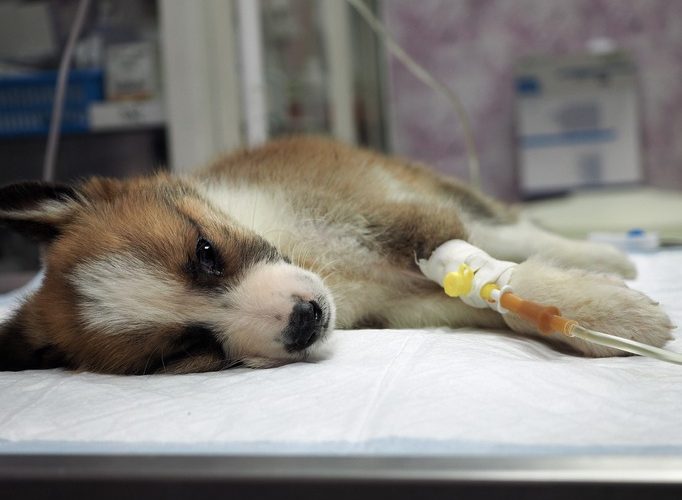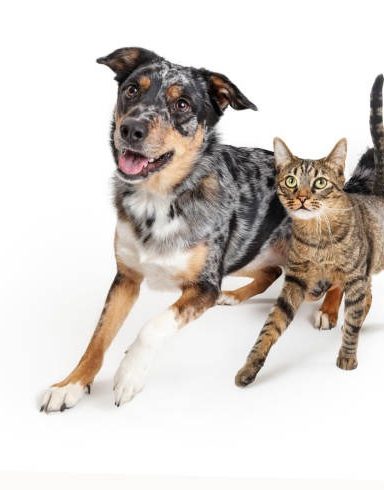Imagine it’s late at night, and your furry friend suddenly starts acting strangely. You instantly know something’s wrong, but your vet’s office is closed, and you’re not sure where to turn for help. This is a situation that pet owners dread, but knowing how to navigate emergency vet care at night can make all the difference.
In this article, we’ll walk you through the steps to finding after-hours help for your pet, discuss important considerations, and touch on some special services for our animal companions.
Finding After-Hours Emergency Vet Clinics
The first thing you need is a game plan to tackle pet emergencies that occur outside typical business hours. Here, we’ll outline how to prepare and what action to take when the unexpected happens.
Research Clinics In Advance
It’s crucial to do some research before an emergency arises. Look for local veterinary hospitals that offer out-of-hours services and note their contact details. Keep this list easily accessible, perhaps on your fridge or saved in your phone.
Utilize Online Resources
In the digital age, finding an emergency vet can be as simple as a quick online search. Typing “emergency vet near me” or “24-hour vet” into your search engine can quickly bring up nearby options. Remember, when it’s dark outside, open clinics might not be as visible, so look out for this during your daytime scouting.
Call Ahead If Possible
If your pet needs urgent care, try to call the clinic en route. This gives the emergency staff a heads-up so they can prepare for your arrival, ensuring your pet gets help as swiftly as possible.
Understanding the Cost of Emergency Care
Emergency vet care often comes with a higher price tag than regular visits. This is due to the around-the-clock staffing, specialized equipment, and the urgency of the cases they handle. Be mentally and financially prepared for this, and consider pet insurance or a savings pot for such situations.
Keeping Calm During a Pet Emergency
Your reaction in an emergency can greatly affect the outcome for your pet. Stay calm, which can be contagious to your pet, who is likely to be stressed as well. Quick and collected action can make the journey to the emergency clinic smoother.
What to Expect at the Emergency Clinic
Once you reach the emergency vet, here’s a quick breakdown of what to typically expect:
-
A brief triage to assess your pet’s condition
-
Potential wait times if cases more critical than yours are being treated
-
Discussion of treatment options and potential outcomes
-
Clear communication regarding costs and payment
Pet Euthanasia
In some unfortunate circumstances, you might be facing the heartbreaking decision of pet euthanasia. It’s essential during these times to find a compassionate clinic that offers gentle cat euthanasia services and understands the delicate nature of this farewell. Taking the time to ensure your pet’s last moments are peaceful and dignified is an act of kindness they deserve.
Pet Emergency Kits and CPR
A well-prepared emergency kit and knowledge of pet CPR can be invaluable in a crisis. Your pet’s emergency kit should include items like bandages, antiseptics, a thermometer, and emergency contact information. As for CPR, it’s worth attending a quick course or workshop — it could save your pet’s life.
Transporting Your Pet Safely
Getting your pet to the clinic safely is paramount. Use a carrier for smaller pets or blankets and a makeshift stretcher for larger animals to keep them immobilized if necessary. Avoid any sudden movements that could exacerbate injuries.
Puppy and Kitten Hospital
When it comes to our younger furry friends, emergencies may center around incidents like accidental ingestion or injury during playtime. In such cases, a specialty facility like a puppy and kitten hospital can be your go-to. These clinics may also offer timely vaccinations, like quick shots for kitten in Ruckersville, to protect your little ones from common diseases.
Home Remedies and When to Use Them
Home remedies can sometimes soothe minor ailments, but it’s key to know when professional help is necessary. Safe home treatments may include a bland diet for stomach upset or a saline solution for eye irritation. However, when in doubt, always err on the side of caution and seek veterinary advice.
Understanding the Emergency Examination
The emergency exam will be thorough to pinpoint the issue quickly. Please provide as much information as you can about your pet’s symptoms and any incidents that may have caused them. This will help the veterinarian make an accurate diagnosis.
Emergency Veterinary Care
In the world of pet healthcare, emergencies are taken seriously. Clinics such as Ruckersville Animal Hospital emergency vet services are equipped to handle a vast array of urgent health situations, from trauma cases to sudden illness. Striving to deliver prompt and effective care, these facilities are often staffed with specialists who can deal with the most critical of conditions.
Building a Relationship with Your Vet
One of the best ways to ensure good emergency care is to have a strong relationship with your vet. They’ll be more familiar with your pet’s medical history, which can be crucial during an emergency.
The Role of Telemedicine in Pet Care
Telemedicine is becoming a valuable tool in veterinary care, allowing for virtual consultations in the early stages of an emergency. This can be especially useful if you’re unsure whether an in-person visit is necessary. Just remember, in dire cases, nothing replaces hands-on care.
Final Thoughts
Dealing with a pet emergency at night can be frightening, but knowing your options and how to act quickly can make a significant difference. Remember to stay calm, act swiftly, and trust the professionals who are trained to handle these situations. We hope that you never have to face a middle-of-the-night emergency, but if you do, we want you to feel equipped and ready to provide the best care possible for your beloved pet.





